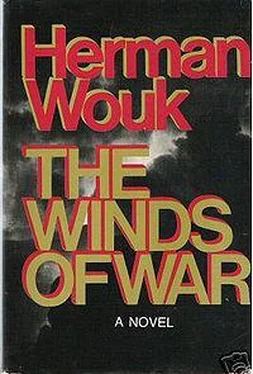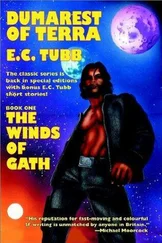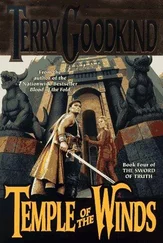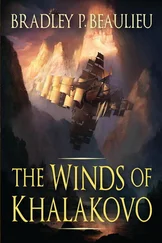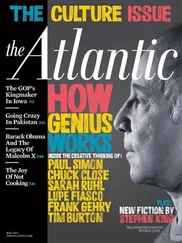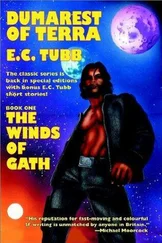Herman Wouk - The Winds of War
Здесь есть возможность читать онлайн «Herman Wouk - The Winds of War» весь текст электронной книги совершенно бесплатно (целиком полную версию без сокращений). В некоторых случаях можно слушать аудио, скачать через торрент в формате fb2 и присутствует краткое содержание. Год выпуска: 1971, Издательство: Collins, Жанр: Историческая проза, на английском языке. Описание произведения, (предисловие) а так же отзывы посетителей доступны на портале библиотеки ЛибКат.
- Название:The Winds of War
- Автор:
- Издательство:Collins
- Жанр:
- Год:1971
- ISBN:нет данных
- Рейтинг книги:4 / 5. Голосов: 1
-
Избранное:Добавить в избранное
- Отзывы:
-
Ваша оценка:
- 80
- 1
- 2
- 3
- 4
- 5
The Winds of War: краткое содержание, описание и аннотация
Предлагаем к чтению аннотацию, описание, краткое содержание или предисловие (зависит от того, что написал сам автор книги «The Winds of War»). Если вы не нашли необходимую информацию о книге — напишите в комментариях, мы постараемся отыскать её.
About the Author
Herman Wouk's acclaimed novels include the Pulitzer-Prize winning
;
;
;
;
;
; and
.
The Winds of War — читать онлайн бесплатно полную книгу (весь текст) целиком
Ниже представлен текст книги, разбитый по страницам. Система сохранения места последней прочитанной страницы, позволяет с удобством читать онлайн бесплатно книгу «The Winds of War», без необходимости каждый раз заново искать на чём Вы остановились. Поставьте закладку, и сможете в любой момент перейти на страницу, на которой закончили чтение.
Интервал:
Закладка:
A calm sunburned marine in a jeep, naked except for shorts, socks, and boots, waited for him at the landing. The marine commander had put his forces on combat alert and wanted to see Captain Henry. They drove along the beach road in blazing sunlight and choking coral dust, then turned off into the brush. Combat alert had not changed the look of Wake in the past hours: three flat sandy peaceful islands in a horseshoe shape around emerald shallows, ringed by the wide sea, alive with myriads of birds — for it had been a sanctuary — and bustling with the bulldozers and trucks of civilian construction gangs. The queer hump-backed island rats hopped like tiny kangaroos out of the jeep’s path, and brilliantly colored birds rose from the brush in chirping clouds.
Perfectly camouflaged by scrub, the command post was sunk far down in coral sand. When Victor Henry faced the marine colonel in this deep timbered hole, saw the radio gear and crude furniture and smelled perking coffee and freshly dug soil, the war with Japan became a fact for him. The dugout did not have the graveyard-muck odor of the Russian trenches; it was roasting hot and dry, not freezing cold and wet: the men frantically working on the telephone lines and the overhead beams were not frostbitten, pale, bundled-up Slavs, but sunburned, heavily sweating Americans in shorts. Yet here, where the roar of the Pacific dimly sounded, these Americans — like the Russians outside Moscow — were going into the ground to await attack. The United States was in.
The colonel, a mild-faced scrawny man with whom Pug had dined the night before gave him an envelope to take to Cincpac. “Put it in the admiral’s hand yourself, Captain. Please! It’s a list of my worst shortages. We can make a fight of it here. Maybe we can hold out till we’re relieved, if he’ll send us that stuff. Radar gear for Wake is sitting right now on the dock in Hawaii. It’s been there for a month. For God’s sake, ask him to put it on a destroyer or better yet a bomber, and rush it here. I’m blind without radar. I can’t send fighters on patrols, I have too few. I’m twenty feet above the ocean at my highest point, and I only gain a few more feet with my water tower. We’ll probably end up eating fish and rice behind barbed wire anyway, but at least we can make the bastards work to take the place.”
Pug got back to the hotel just ahead of a rain squall. The Clipper passengers were sitting down to lunch when blasts shook the floor, rattled the dishes, and sent broken windowpanes slinking to the tiles. Amid shouts and cries the passengers jumped for the windows. Fat cigar-shaped airplanes, with orange circles painted on their flamboyant jungle camouflage, were flashing past in the rain; Pug noted their twin engines and twin tails. Smoke and fire were already rising from the airfield across the lagoon, and more explosions, bigger flames, heavier smoke came fast. Pug had often seen bombing, but this attack, destroying an American installation with impunity, still outraged and numbed him.
The marauding bombers, blurry in the rain, kept crisscrossing the islands and the lagoon with thunderous engine roars, meeting only meager bursts of fire. Soon a line of bombers came winging straight for the Pan American compound, and this was what Victor Henry was fearing. An attack on the Clipper might strand him and paralyze his war career before it started. There was no way off Wake Island, except aboard that huge inviting silvery target. Savage explosions and crashes burst around them as the planes bombed and machine-gunned the hotel, the Pan Am repair shops, the dock, and the radio tower. A gasoline dump close by went up in a colossal sheet of white flame, climbing to the sky with a terrific howl. The passengers dove under tables or huddled in corners, but Victor Henry still crouched at the window beside the pilot, watching. They saw spurts of water approach the flying boat. They saw pieces of the Clipper go flying.
When the bomber sounds faded, Pug followed the pilot out onto the pier at a run. Like a clothed ape, Ed Connelly clambered over the slippery flying boat in the rain, making it rock and slosh. “Pug, so help me God, I think we can still fly! They didn’t hole the tanks or the engines. At least I don’t think they did. I’m hauling my passengers the hell out of here now, and I’ll argue with Hawaii later.”
The passengers eagerly scrambled aboard. The Clipper took off, and it flew. Below, smashed airplanes flamed and all three islands poured smoke. Pug could see little figures looking up at the departing Clipper. Some waved.
Even in the dead of night, nine hours later, Midway was not hard to find. The pilot called Victor Henry to the cockpit to show him the star of flame far ahead on the black sea. “Christ, these Japs had the thing all lined up, didn’t they?” he said. “They hit everywhere at once. I heard over the radio they’re already in Malaya, Thailand, Hong Kong, they’re bombing Singapore—”
“Can we land, Ed?”
“We’ve got to try. I can’t raise them. All the navigation lights are out. Midway has a lot of underground tanks, and if we can just get down, we can fuel. Soooo — here goes.”
The flying boat dropped low over dark waters, lit only by the glare from blazing hangars and buildings. On slapping into the sea, it hit something solid with a frightening clang, but slowed and floated undamaged. The airfields of Midway, they soon learned, had been shelled by a Japanese cruiser and a destroyer. An exhilarated mob of almost naked fire fighters was flooding the blazes with chemicals and water, generating giant billows of acrid red smoke. Victor Henry found his way to the commandant’s office and tried to get news of the Pearl Harbor attack. The lieutenant on duty was obsequious and vague. The commandant was out inspecting the island’s air defenses, he said, and he had no authority to show top secret dispatches, but he could tell the captain that the Navy had shot down a mess of Japanese planes.
“How about the California ? I’m going there to take command of her.”
The lieutenant looked impressed. “Oh, really, sir? The California ? I’m sure she’s all right, sir. I don’t recall any word about the California .”
This news enabled Victor Henry to sleep a little, though he tossed and muttered all night and got up well before dawn to pace the cool hotel veranda. The goony birds of Midway, big hook-beaked creatures which he had heard about but never seen, were out by the dozens, walking the gray dunes. He saw them clumsily fly, and land, and tumble on their heads. He watched a pair do a ridiculous mating dance on the beach as the sun came up, plopping their feet like a drunken old farm couple. Ordinarily Victor Henry would have seized the chance to inspect Midway, for it was a big installation, but today nothing could draw him out of sight of the flying boat, rising and falling on the swells and bumping the dock with dull booms.
The four hours to Hawaii seemed like forty. Instead of melting away at its usual rate, time froze. Pug asked the steward for cards and played solitaire, but forgot he was playing. He just sat, enduring the passage of time like the grind of a dentist’s drill, until at last the steward came and spoke to him, smiling. “Captain Connelly would like you to come up forward, sir.”
Ahead, through the plexiglass, the green sunny humps of the Hawaiian Islands were showing over the horizon.
“Nice?” said the pilot.
“Prettiest sight I’ve seen,” said Pug, “since my wife had a girl baby.”
“Stick around, and we’ll take a look at the fleet.”
Nobody aboard the Clipper knew what to expect. The rumors on Midway had varied from disaster to victory, with graphic details both ways. The Clipper came in from the north over the harbor and hooked around to descend. In these two passes, Victor Henry was struck sick by what his disbelieving eyes saw. All along the east side of Ford Island the battleships of the Pacific Fleet lay careened, broken, overturned, in the disorder of a child’s toys in a bath. Hickam Field and the Navy’s air base were broad dumps of blackened airplane fragments and collapsed burned hangar skeletons. Some dry docks held shattered tumbled-over ships. Pug desperately tried to pick out the California in the hideous smoky panorama. But at this altitude the ships with basket masts looked alike. Some of the inboard vessels appeared just slightly damaged. If only one was the California !
Читать дальшеИнтервал:
Закладка:
Похожие книги на «The Winds of War»
Представляем Вашему вниманию похожие книги на «The Winds of War» списком для выбора. Мы отобрали схожую по названию и смыслу литературу в надежде предоставить читателям больше вариантов отыскать новые, интересные, ещё непрочитанные произведения.
Обсуждение, отзывы о книге «The Winds of War» и просто собственные мнения читателей. Оставьте ваши комментарии, напишите, что Вы думаете о произведении, его смысле или главных героях. Укажите что конкретно понравилось, а что нет, и почему Вы так считаете.
